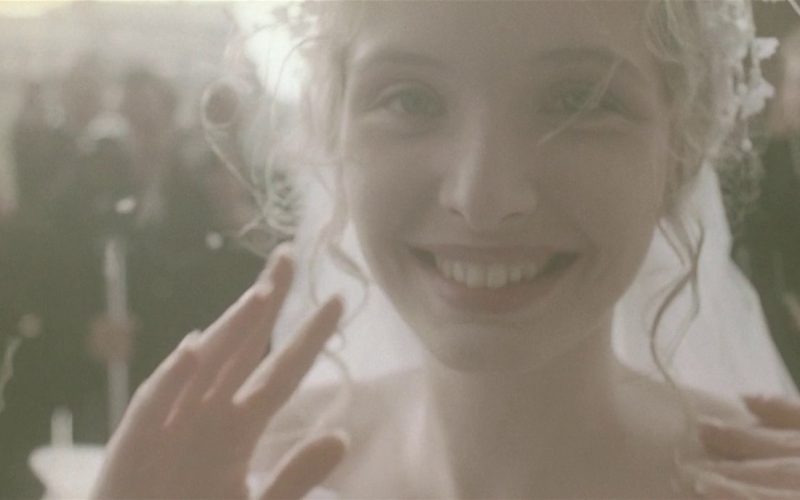Three Colors: White (1994).
***SPOILER WARNING***
I must admit, if I’d watched Three Colors: White in isolation, I probably would’ve dismissed it. It’s an interesting film which generates a fair few laughs and more than a few smiles, but it seems slight, lacking in depth. It’s difficult to see what the filmmakers wanted to achieve other than telling an offbeat story in a somewhat deadpan manner.
However, White is not a film in isolation, it’s the second segment of a three part trilogy from director Krzysztof Kieslowski, loosely based around the three elements of the French motto and flag. When setting out making this trilogy, Kieslowski had a plan, a trio of overriding themes he wanted to explore and when one approaches White with this in mind it becomes much richer, indicating a depth that isn’t initially obvious. There are active and strong currents beneath the surface and as you venture deeper you’re sucked in to it.
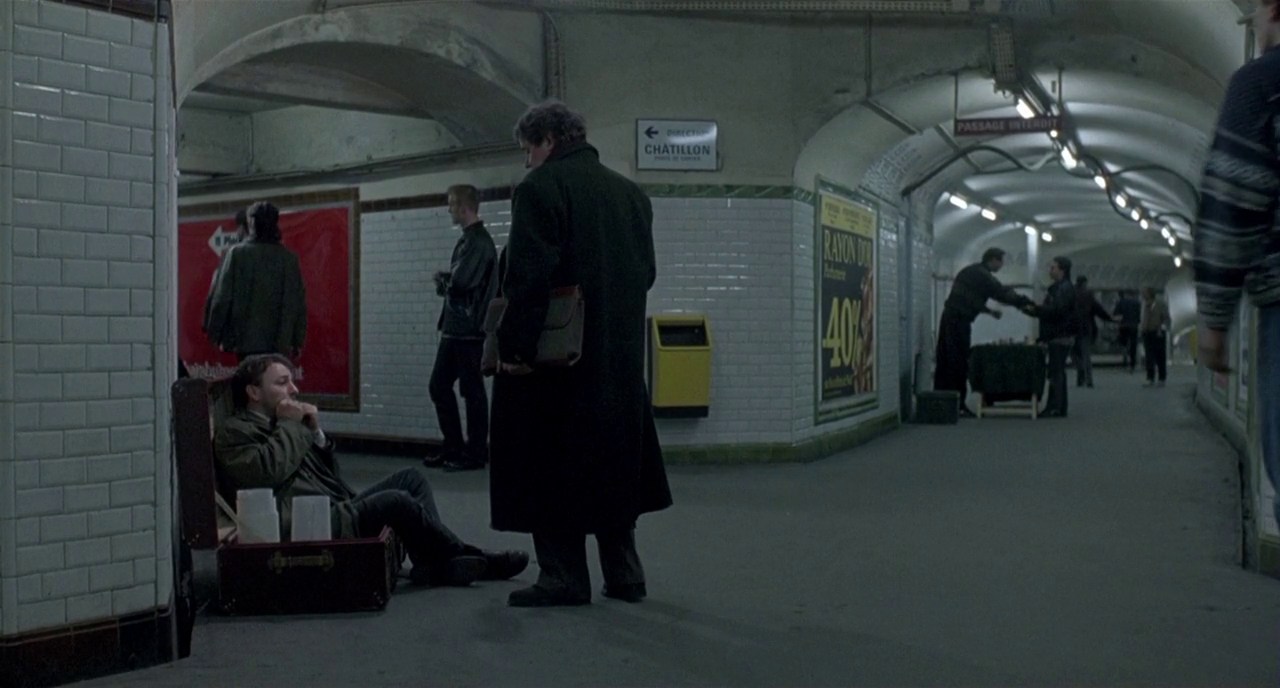
White tells a simple story. The first part involves Polish immigrant in Paris, Karol Karol (played by Zbigniew Zamachowski), who longs to return to his home country. He’s had a divorce from his beautiful yet spiteful wife Dominique, played by Julie Delpy, a woman determined to take everything from him – his money, his property, his freedom, all because he couldn’t perform in bed.
Karol finds himself busking in a Metro station using a comb and a handkerchief in lieu of a kazoo. There he meets Mikolaj, another Pole who has troubles of his own and is as lost as Karol. Mikolaj agrees to smuggle Karol back to Poland in a suitcase. This results in one of the film’s funniest scenes in which Mikolaj is waiting for the case at the airport but it fails to show up on the carousel.
White is filmed in such a deadpan manner that the reaction to this scene may define how the viewer responds to the film as a whole. I laughed but others may balk at the unlikelihood of the situation.
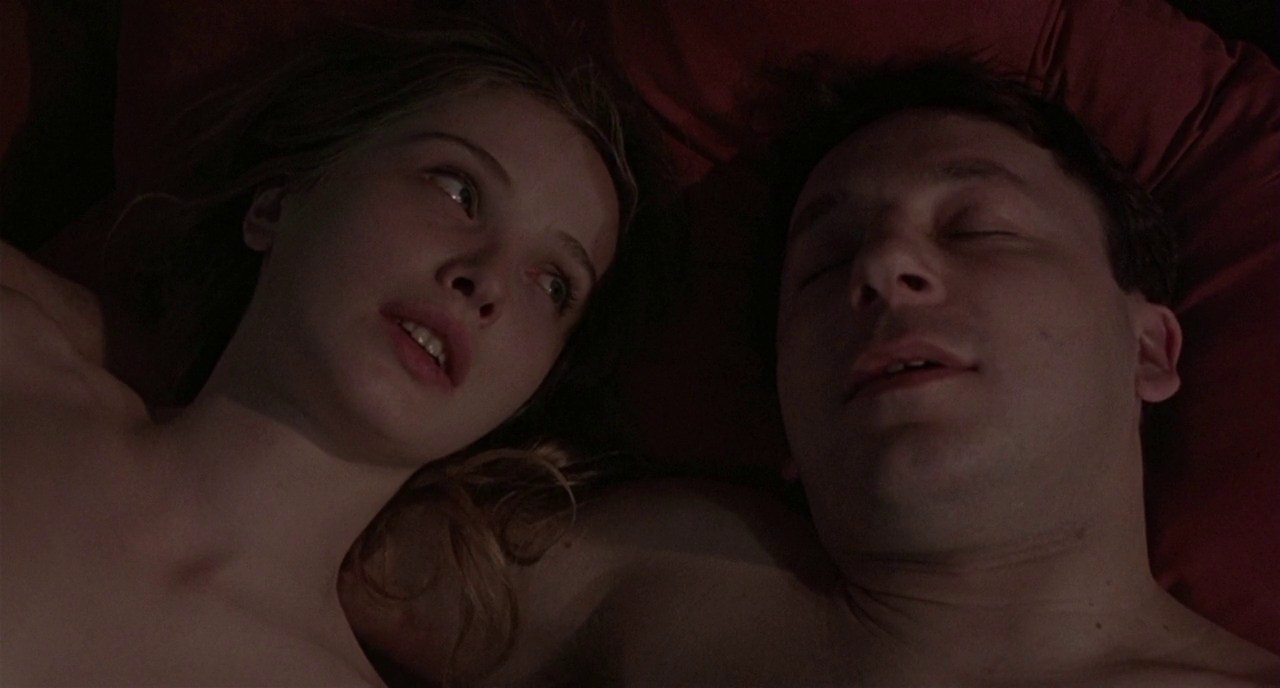
It turns out that the suitcase has been stolen and the thieves are none too happy when they open the case to split their spoils. Instead of the latest technology, some jewellery or maybe money, they get a home-sick Pole. Karol is beaten and left bloodied in the snow. The landscape is cold and grim but as he looks around our hero can’t help but smile and proclaim, ‘Home at last!’
Again, I laughed. Despite his situation I couldn’t help but like Karol. This is how the humour in White works. There’s a darkness to it, a gallows humour but balanced with a pleasing optimism. Karol has been beaten, humiliated and left for dead – and this was all after his long journey stuffed into a suitcase – and yet he’s still happy at the end of it. He’s home and nothing else matters. There’s an enduring quality to his character which is both pathetic and buoyant at the same time. Maybe this is the overriding strength of White – this contradiction at the heart of the character which is both his greatest strength and his greatest weakness at the same time.
The second half of the film involves his wheeling, dealing, spying and rising in the world of business. He is joined by Mikolaj who originally wanted Karol to kill him but then changes his mind in a poignant scene that underlines the goodness in Karol and the need in Mikolaj.
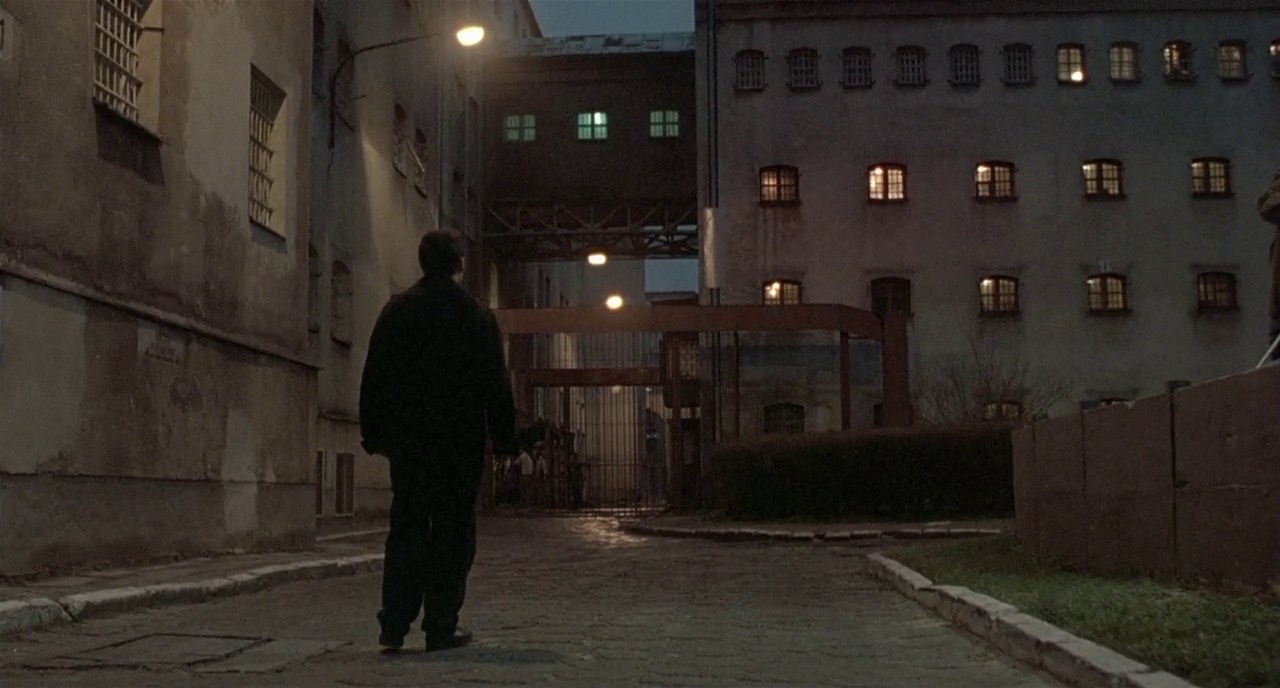
Finally, Karol sets out his plan to both prove himself to Dominque and then seek revenge against her for what she’s done to him.
So far, so simple. But how does this story relate to Equality, the second part of the French tripartite motto the series is based upon? Just like the first film in the series, Blue, White asks you to look beyond what’s on the screen and think about the themes at its core.
Let’s go back to Karol’s marital problems. He couldn’t deny that he was unable to perform with Dominique. He even had the displeasure of admitting it in open court in front of the judge, the lawyers and his translator. The reason for this inability was because he was intimidated by Dominique (as her name indicates, she was the dominator and he is certainly under her thumb). We are offered no back story as to how they got together, why they fell in love and how they communicated. They did seem to have an active sex life before their wedding, and it was from then on that the problems started.
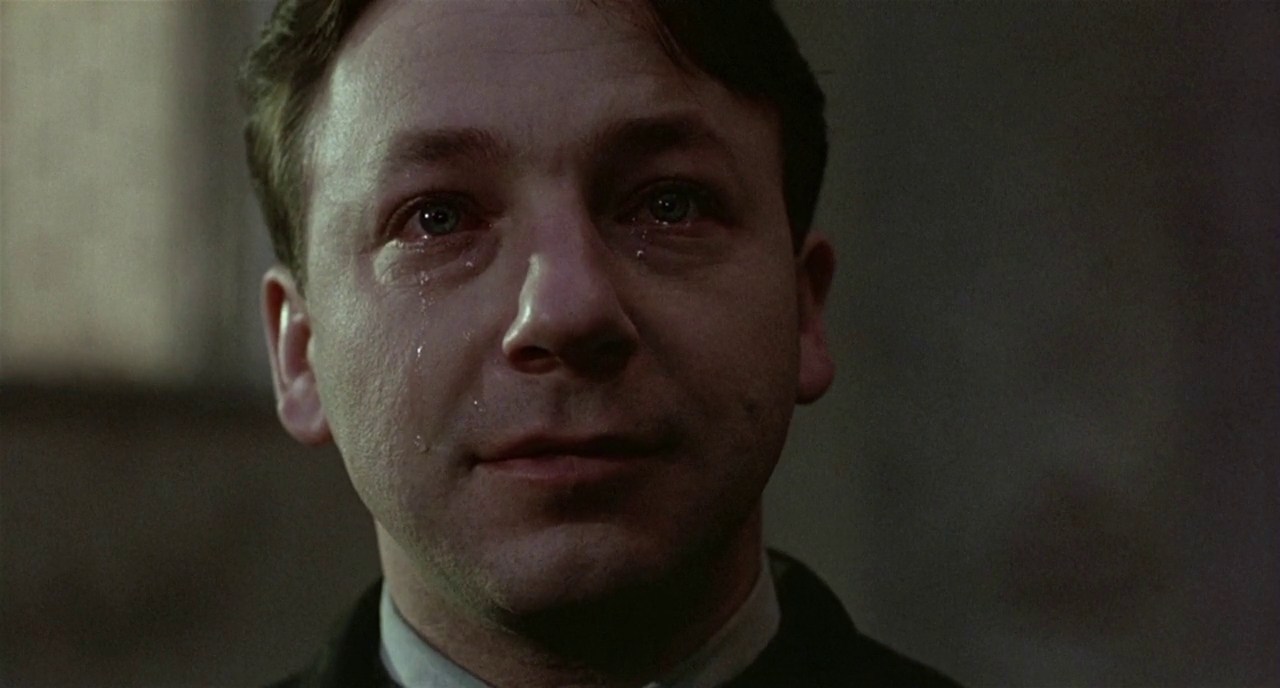
But as far as Karol was concerned, he wasn’t her equal and so he wasn’t able to perform. As the film progresses and he becomes more successful, he becomes less bumbling and gains more control over himself (witness the change in hair styles). He becomes the man in charge and people listen to him, whereas he would have once balked at the idea of standing center stage, he slowly becomes more comfortable in this position. There are moments of weakness because he is still desperately in love with Dominique but, all in all, there is a distinct change in him.
It’s because of this change that he becomes the equal to Dominique. He can once again make love to her which makes her realise she still loves him. She respects his success and his new found sexuality but that isn’t enough. For her to fully appreciate Karol and for Karol to secure his new-found equality, he must complete his revenge so she can be punished and, perversely, they may get back together. As equals? Maybe not. Maybe he is the one who now needs to dominate.
White isn’t as good a film as its predecessor. The look of White is quite different. Whereas Blue benefited greatly because of the use of the titular colour in the cinematography, the colour white is less visually interesting. Without the use of a primary colour the presentation was never going to complete on a purely aesthetic level. Instead we are presented with the coldness and bleakness of a Polish winter, a place in which any beauty becomes frigid (like Karol) and raw.
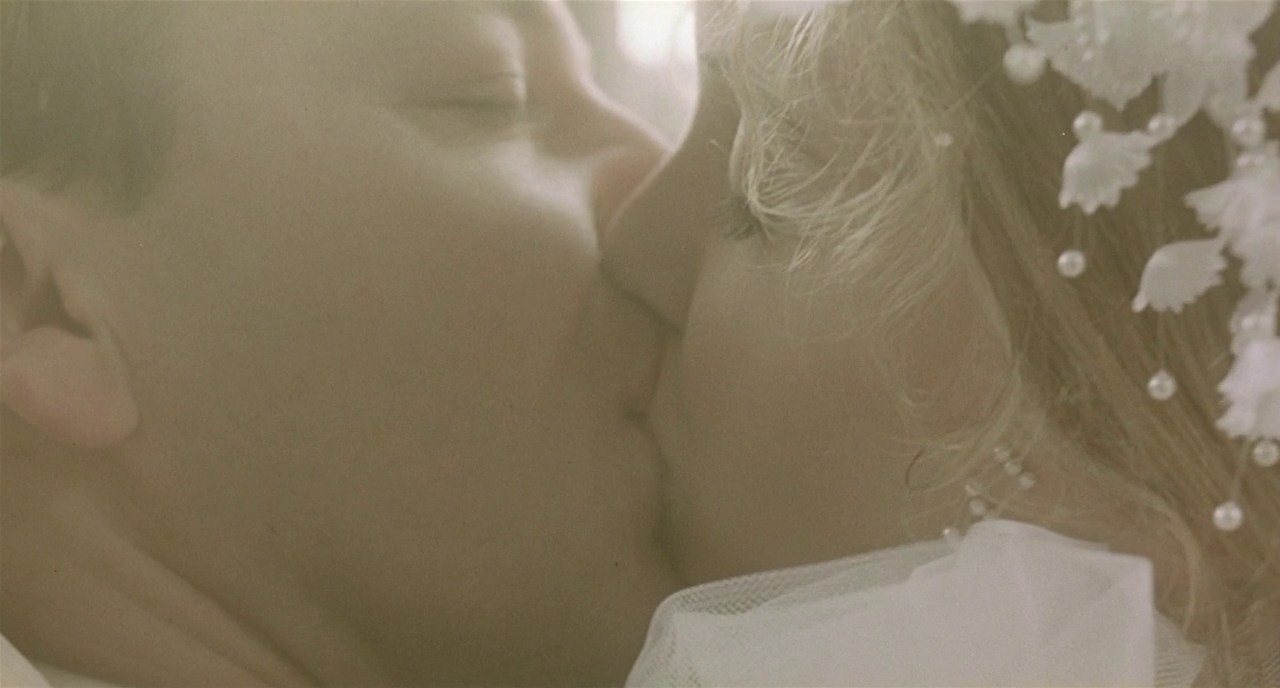
White is also perhaps less pretentious than either Blue or the third chapter in the trilogy, Red, at least on the surface. It is what it is and, as I have stated, in isolation it may be easy to dismiss. The direction is less ambitious than either of the other films, the story is more straight forward and the cinematography less endearing.
I once thought that maybe White wouldn’t have stayed with me for very long, that the film would be forgettable, but this hasn’t proven to be the case. In the years between my first viewing and the more recent one, I’ve thought about it many more times than I would have thought. Yes, to enjoy it you must accept the outlandish aspects of its premise and the deceptive simplicity of its story but if you can do that, (I accept that some will find these too great a set of hurdles), then you’ll find a surprisingly funny and likable film that rewards repeat viewings.
Film ‘89 Verdict – 8/10

